Most private schools in Bujumbura have now compulsory “Reinforcement Classes”. In secondary school these are quite common, but they are new for the young pupils in primary school. Reinforcement classes are obligatory and cost parents extra money; this amount varies from a private school to another and can be expensive. Most parents are welcoming this reform but at some schools like ‘Ecole Les Mignons’, the pill is hard to swallow.-By Joanna Nganda
Last weekend on Sunday 3 November 2013, at ‘Ecole Les Mignons’ the General Assembly meeting that gathered parents, the parents’ Committee and School Management was very polemical. As explains Spès Ntavyo, Headmistress of ‘Ecole Les Mignons’, “I have never seen such a thing, we’ve always had a parents’ Committee and since 1996 we’ve had a lot of General Assembly meetings. But a General Assembly like the one we had last Sunday? I have never seen anything like it before.” The agenda of the General Assembly was featured by very controversial topic of Reinforcement Classes. These are compulsory and are to be held within the school’s compound 3 afternoons a week, from 3 pm to 5 pm. One can wonder if, after just one week of school, the teachers have already identified the weaknesses of the pupils and have decided Reinforcement Classes to be a necessary measure. Also, one could wonder whether or not all the pupils need to be reinforced. Have they all the same level or are they all weak? Should the weak and the strong follow the same reinforcement classes, wouldn’t it be an extension of the already existing morning classes?
Two different views
On one hand, both angry parents and the parents’ Committee are against the reform. A member of the Committee explains the source of the polemic. “We are against the reform because we do not think it is needed, the pupils at ‘Ecole Les Mignons’ have good grades and the parents are happy. The performance charts of 2011-2012 were satisfying and we do not see the need of change when all is running well. Above all, the school year has already begun and we see the reform as a trap: the 1st term school fees are being paid, and books which are even more expensive than the school fees are also paid. It is quite understandable that it is impossible to start looking for a new school for our children now. We will lose too much by changing now because it’s too late. The amount of 10,000Fbu per month is a lot of money. This means 30,000Fbu per term (3 months) in addition to the existing school fees, 80,000Fbu….we do not think this reform has a pedagogical purpose, but rather hidden personal purposes of the school.”
It is worth pointing out that a sum of 15,000Fbu was fixed by the School Management before the Sunday’s meeting. Parents are required to pay that money for the first month of the school year. On the other hand, Spès Ntavyo, Headmistress of ‘Ecole Les Mignons’ defends the School Management Authority. “As stipulated in our school’s statutes, we must have a parents’ Committee that is made of 6 volunteer people representing all the parents whose children are pupils at ‘Ecole Les Mignons’. This Committee has an advisory status and the School Management must consult it while making decisions. But this time, the Committee clearly had some problems to understand or figure out its role and wanted to replace the School Management authority. In fact, the parents Committee even held three meetings without the School Management which is forbidden by the school regulations!” boldly states Spès Ntavyo . As mentioned by the latter, ‘Ecole Les Mignons’ has always satisfying grades and a good place enough in the list of Bujumbura best private primary schools. However, Spès Ntavyo is saddened to notice that ‘Ecole Les Mignons’ is slowly decreasing its performances.
The motives of the reform
“Seeing schools that used to be behind us on the list in terms of performance now in front of us is very much frustrating. We can do better than that, and that is the reason why we have decided that our pupils should come back 3 afternoons a week”, complains Ntavyo. She adds that they were among the very few ones who did not give afternoon classes. In fact, afternoon classes were the norm before the civil war and security problems, “back then, coming to school once a day was already risky”. Spès Ntavyo stresses the fact that during these afternoon classes no new lessons are given, only exercises. The same reform states that it is highly forbidden for teachers to give remedial courses on their own apart from the Reinforcement Classes. “This measure is aimed at avoiding cheating. Although parents are convinced that investing in a private remedial teacher is a good investment, several teachers tend to show the students a version of the upcoming tests. The good grades of the children push the parents to believe and think the necessity of the private teacher. A private teacher can get as much as one million of francs per month,” she explains. She continues to say that their school is not the only one with compulsory Reinforcement Classes; neither is it the most expensive. According to her, most of the parents are happy with it since the 3 afternoons are put to good use instead of having their children stuck in front of the TV or out in the streets doing God knows what. She underlines that 10,000Fbu a month is not too much; “it’s not even enough to buy a case of soft drink! That is why, at first I did not understand why the parents’ Committee would be against a good reform”, exclaims the headmistress. Expressing her astonishment, she has this to say. “The members of the committee are volunteers. The fact that they are volunteers means that anyone can come up with their own agendas and destabilize the proper functioning of the school. In this particular case, who loses? The teachers who are not getting the money they used to get from their private remedial courses, not the parents. The 6 members of the parents’ Committee might be the voice of those teachers, trying to defend their main source of revenue.” During the General Assembly meeting, Ntavyo highlighted that if the Reinforcement Classes would not improve the pupils’ overall level after their evaluation at the end of the school year, then the school would go back to the old system.

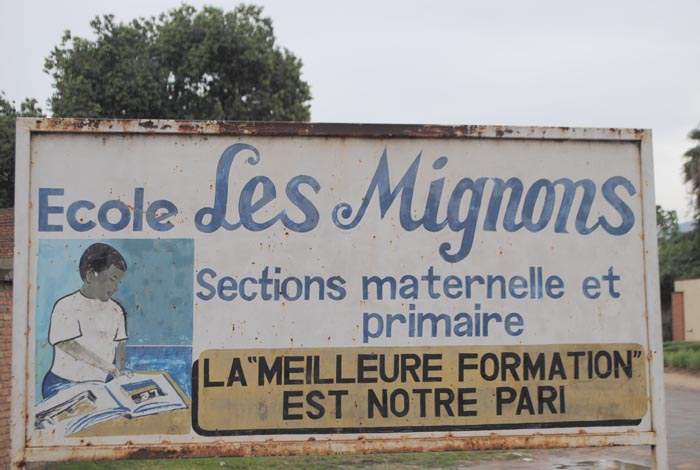
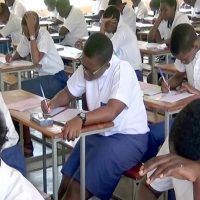
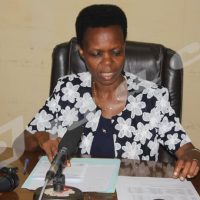
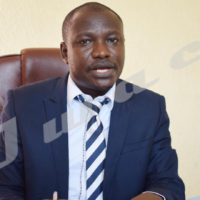
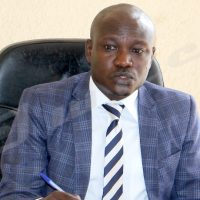














 IWACU Open Data
IWACU Open Data

